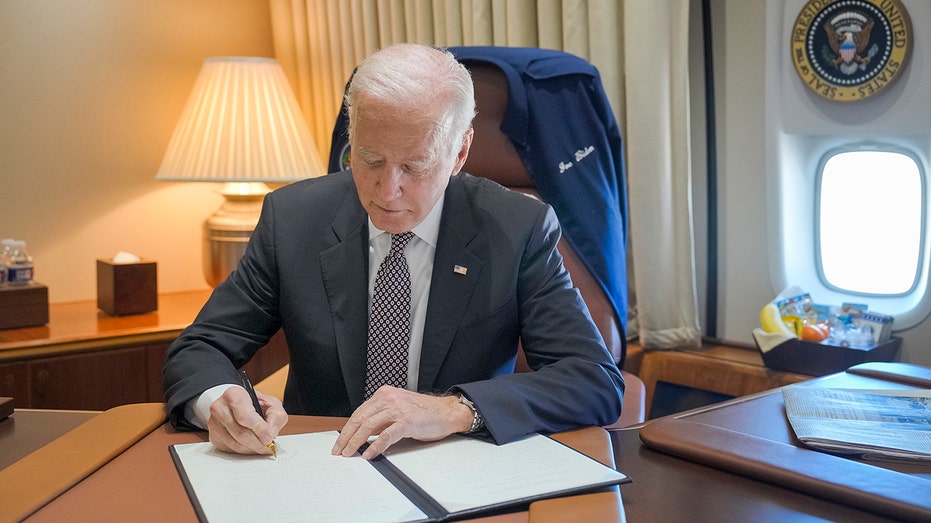Biden's Most Controversial Pardons: Autopen Signatures Spark Debate
Justice Department investigates Biden pardon list amid autopen controversy.

The Justice Department is actively reviewing the extensive list of pardons granted by former President Joe Biden during his final days in office, raising fresh questions about the methods and motivations behind these controversial acts of clemency. Scrutiny has intensified following revelations that dozens of these executive actions were authorized using an autopen, a mechanical device that can replicate a signature on official documents, rather than being personally signed by the former president. The review comes amid mounting concerns regarding Biden’s mental acuity in the closing months of his presidency, fueling speculation about the legitimacy and oversight of the high-profile pardons.
During this sweeping exercise of presidential power, Biden granted clemency to over 1,500 individuals—an unprecedented move described by his administration as the largest single-day act of clemency in U.S. history. Among those pardoned were not only nonviolent offenders but also several members of Biden’s own family and political allies. Critics argue that some pardons appeared to be preemptive, shielding close associates from anticipated investigations under the incoming administration. The revelations have sparked bipartisan debate over the propriety and intent of Biden’s last-minute decisions.
Of particular note, Biden signed by hand the pardon for his son, Hunter Biden, after previously asserting he would not intervene in his son’s legal affairs. Hunter was found guilty of multiple felony firearm offenses and faced charges related to substantial unpaid federal taxes. Nevertheless, in December 2024, Biden issued a blanket pardon covering any potential federal offenses Hunter might have committed over a ten-year span. In a statement, Biden defended his decision, citing both the personal and relentless public scrutiny his family endured, and appealing for public understanding of his actions as both a father and president.
Just one day before leaving office, Biden extended full and unconditional preemptive pardons to several other family members, including his brothers James and Francis, sister Valerie, and their spouses. These pardons, which were reportedly executed using autopen, encompassed any "nonviolent offenses against the United States" allegedly committed from 2014 through January 2025. The timing and manner of these pardons have drawn sharp criticism, particularly as congressional investigations into the Biden family’s business dealings were ongoing at the time.
The House of Representatives had launched an impeachment inquiry into Biden’s conduct as vice president, alleging that he engaged in "impeachable conduct" and defrauded the United States for personal enrichment. According to findings, the Biden family and its associates reportedly received significant sums—over $27 million—from foreign entities, with millions more in unverified loans from Democratic donors. The inquiry culminated in criminal referrals and ongoing legal scrutiny, further complicating the legacy of Biden's final presidential acts.
Beyond his family, Biden also used the power of the pardon for high-profile government officials and allies. In the waning hours of his presidency, he pardoned General Mark Milley, former chairman of the Joint Chiefs of Staff, citing the fallout from the 2021 Afghanistan withdrawal, which left 13 American servicemembers dead and was widely condemned as a "strategic failure." Milley expressed relief for the president’s action, emphasizing a desire to protect his family from political retribution.
On the same day, Dr. Anthony Fauci, the former director of the National Institute of Allergy and Infectious Diseases and Biden’s chief medical advisor, received a pardon reportedly signed by autopen. Fauci, facing threats of prosecution from political opponents, insisted no crimes had been committed but acknowledged the emotional toll inflicted on him and his family by persistent allegations.
In an even more sweeping gesture, Biden pardoned members of Congress who had served on the House Select Committee investigating the January 6, 2021, Capitol riot, as well as committee staff and law enforcement witnesses. This blanket pardon again raised questions about the use of autopen and the degree of direct oversight exercised by the outgoing president.
As the Justice Department continues its review, debate rages over the appropriateness and legality of using an autopen for such consequential documents, especially given the lingering doubts about Biden’s cognitive health during his final weeks in office. Lawmakers from both parties are calling for transparency and potential legislative reforms to clarify the limits of executive clemency and ensure robust checks are in place going forward. The unfolding investigation promises to keep the spotlight on the Biden administration’s final days, raising far-reaching questions about presidential accountability and the future of the pardon power itself.




